Not recd as per Picture on Website
Available 24/7
Available 24/7
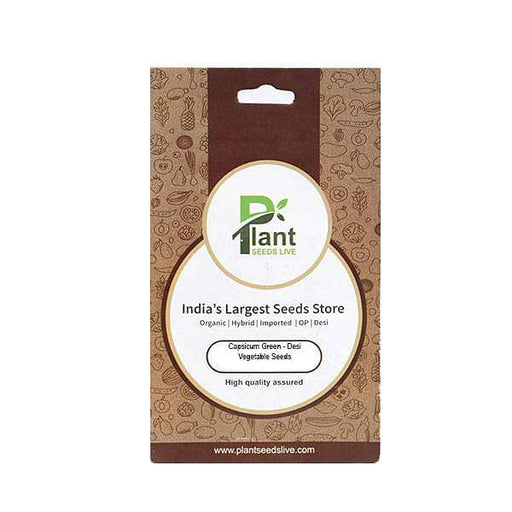
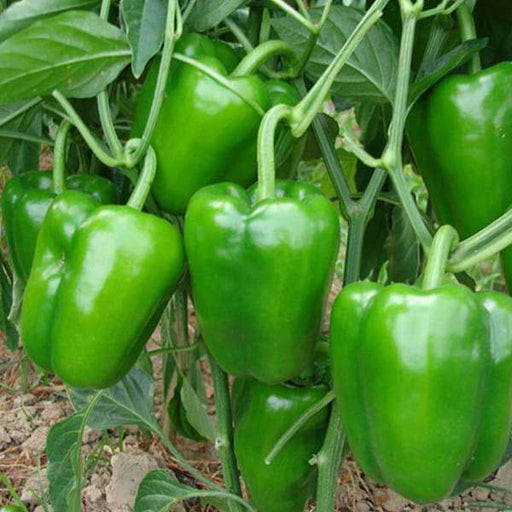 Save 25%
Save 25%
Capsicum Green - Desi Vegetable Seeds Capsicum Green, also known as bell pepper, is a vibrant and nutritious addition to your garden. Thes...
View full details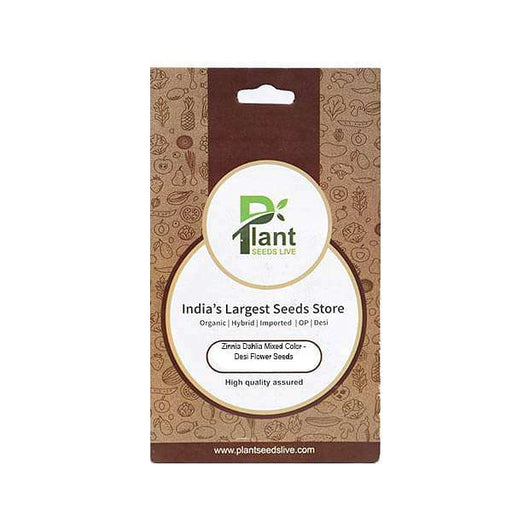
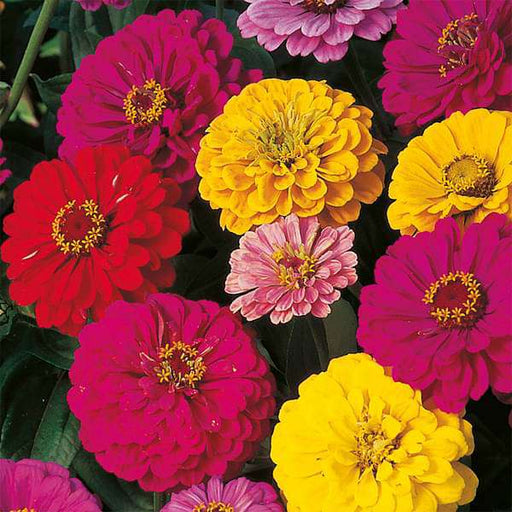 Save 25%
Save 25%
Zinnia Dahlia Mixed Color - Desi Flower Seeds Transform your garden into a vibrant tapestry of colors with our Zinnia Dahlia Mixed Color -...
View full details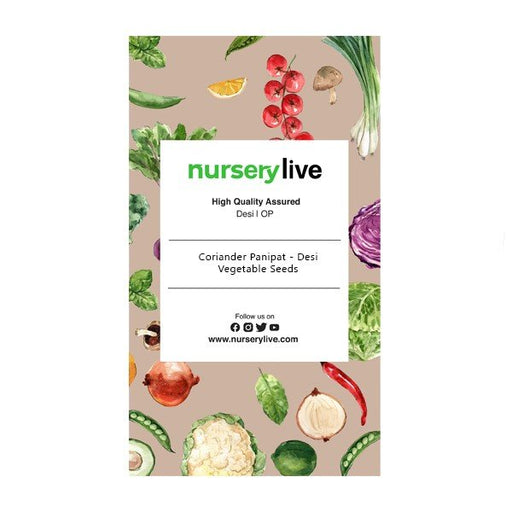
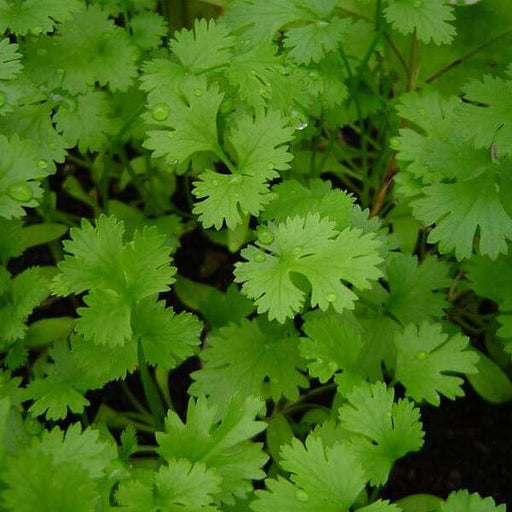 Save 25%
Save 25%
Coriander Panipat - Desi Vegetable Seeds Coriander Panipat is a premium variety of coriander seeds, cherished for its aromatic leaves and ...
View full details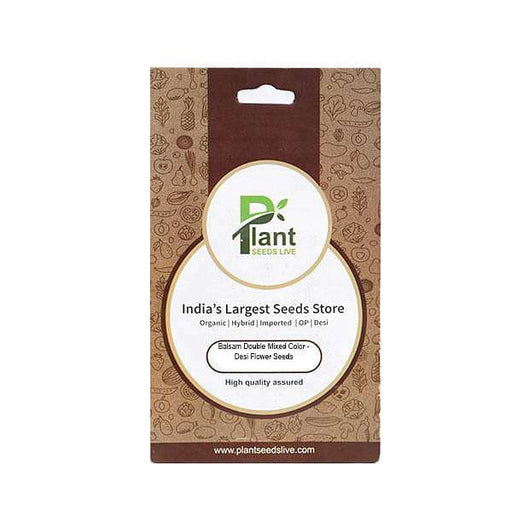
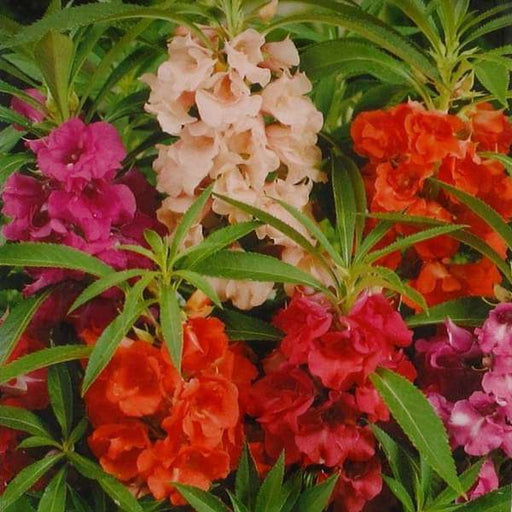 Save 25%
Save 25%
Balsam Double Mixed Color - Desi Flower Seeds Discover the vibrant beauty of Balsam Double Mixed Color - Desi Flower Seeds, a delightful a...
View full details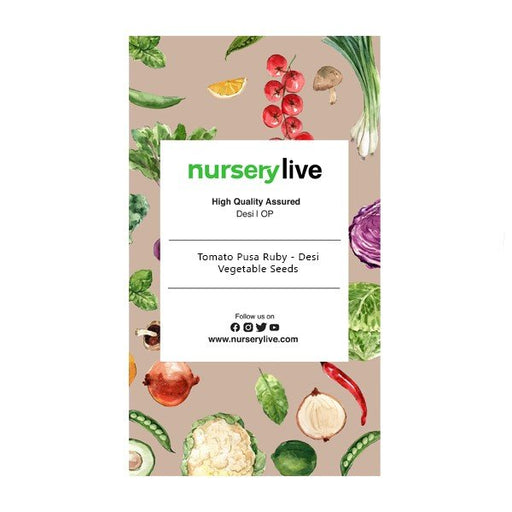
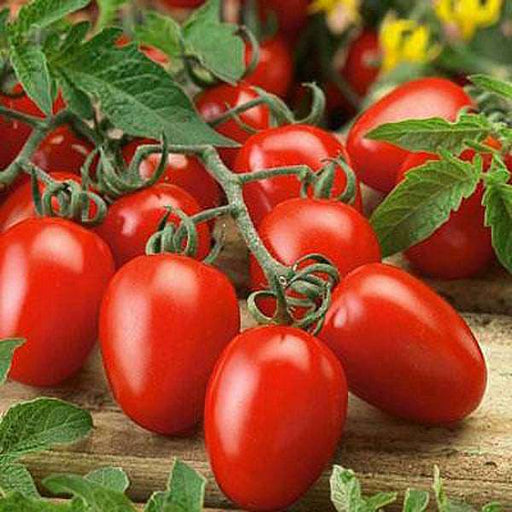 Save 25%
Save 25%
Tomato Pusa Ruby - Desi Vegetable Seeds The Tomato Pusa Ruby is a premium variety of tomato seeds, renowned for its vibrant red color, jui...
View full details
 Save 25%
Save 25%
Cherry Tomato, Cherry Tomato Honey - Vegetable Seeds Discover the delightful world of Cherry Tomato Honey seeds, perfect for home gardener...
View full details
 Save 25%
Save 25%
Spinach All Green - Desi Vegetable Seeds Introducing the Spinach All Green - Desi Vegetable Seeds, a premium variety of spinach that thriv...
View full details
 Save 35%
Save 35%
Best 6 Plants for Perfect Indoor Garden Transform your living space into a lush oasis with our curated collection of the Best 6 Plants for a...
View full details
 Save up to 50%
Save up to 50%
Mini Succulent Garden Pack Transform your space with our Mini Succulent Garden Pack, featuring a delightful collection of 4 any variety beautiful s...
View full details
 Save 30%
Save 30%
5 Best Fragrant Plants Transform your garden or indoor space into a fragrant paradise with our curated selection of the 5 Best Fragrant Plants. Th...
View full details
 Save 24%
Save 24%
Set of 2 Bonsai Looking Grafted Adeniums Transform your indoor or outdoor space with our exquisite Set of 2 Bonsai Looking Grafted Adenium...
View full details Save 45%
Save 45%
Top 4 Die Hard Succulents Pack Transform your indoor or outdoor space with our Top 4 Die Hard Succulents Pack, featuring a curated selecti...
View full details
 Save 30%
Save 30%
5 Best Indoor Plants Pack Transform your living space into a lush oasis with our '5 Best Indoor Plants Pack.' This carefully curated collection fe...
View full details
 Save 25%
Save 25%
Set of 4 Evergreen Air Purifier Plant Pack Transform your indoor space into a lush, green oasis with our Set of 4 Evergreen Air Purifier Pla...
View full detailsDiscover the joy of gardening with our collection of Easy To Grow Flower Seeds, perfect for beginners and seasoned gardeners alike. These carefully selected seeds are not only vibrant and beautiful but also require minimal effort to thrive. Whether you’re looking to brighten up your garden, attract pollinators, or create stunning floral arrangements, our collection has something for everyone.
What makes our Easy To Grow Flower Seeds special is their resilience and adaptability. Each seed variety is chosen for its ability to flourish in various climates and soil types, ensuring that you can enjoy a colorful garden no matter where you live. With a little love and care, these flowers will bloom beautifully, providing a feast for the eyes and a haven for beneficial insects.
Growing your own flowers not only enhances your outdoor space but also contributes positively to the environment. Flowers play a crucial role in supporting local ecosystems by attracting pollinators like bees and butterflies. By planting our Easy To Grow Flower Seeds, you’re not just cultivating beauty; you’re also fostering biodiversity and promoting a healthier planet.
Historically, flowers have held significant cultural importance across civilizations. Ancient Egyptians revered the lotus flower, symbolizing rebirth and purity, while the Romans used flowers in their festivals and rituals. Today, flowers continue to be a universal symbol of love, celebration, and remembrance, making them a cherished addition to any garden.
From an environmental perspective, planting flowers contributes to the health of our ecosystems. They provide essential habitats for pollinators and other wildlife, helping to maintain biodiversity. Additionally, flowers can improve air quality and reduce soil erosion, making them a vital component of sustainable gardening practices.
Annual flowers are easy to grow and provide beautiful blooms for a single season. With our easy-to-grow annual flower seeds, you can add a pop of color to your garden or balcony.
Perennial flowers are a great investment for your garden, as they come back year after year. Our easy-to-grow perennial flower seeds will provide you with gorgeous blooms for years to come.
If you want to add a touch of nature to your garden, our easy-to-grow wildflower seeds are the perfect choice. These seeds will provide you with a colorful and diverse mix of flowers that will attract bees and butterflies.
Nothing says summer like a field of sunflowers. Our easy-to-grow sunflower seeds are a great choice for those who want to add a touch of sunshine to their garden.
Zinnias are easy-to-grow flowers that come in a wide range of colors. Our zinnia seeds will provide you with beautiful blooms that will attract butterflies to your garden.
Marigolds are easy-to-grow flowers that come in shades of orange, yellow, and red. These flowers are perfect for adding a pop of color to your garden or for planting in pots.
Poppies are easy-to-grow flowers that come in a variety of colors. These beautiful flowers are perfect for adding a touch of elegance to your garden.
Daisies are easy-to-grow flowers that come in shades of white, pink, and yellow. These flowers are perfect for adding a touch of whimsy to your garden.
Cosmos are easy-to-grow flowers that come in shades of pink, white, and purple. These flowers are perfect for adding a touch of elegance to your garden.
Lupines are easy-to-grow flowers that come in shades of blue, purple, pink, and white. These flowers are perfect for adding a touch of color to your garden.
Nasturtiums are easy-to-grow flowers that come in shades of orange, yellow, and red. These flowers are perfect for planting in pots or hanging baskets.
Bachelor's buttons are easy-to-grow flowers that come in shades of blue, pink, and white. These flowers are perfect for adding a touch of charm to your garden.
Pansies are easy-to-grow flowers that come in a wide range of colors. These flowers are perfect for planting in pots or for adding a touch of color to your garden.
Sweet peas are easy-to-grow flowers that come in shades of pink, purple, and white. These flowers are perfect for adding a touch of fragrance to your garden.
Snapdragons are easy-to-grow flowers that come in shades of pink, red, and white. These flowers are perfect for adding a touch of elegance to your garden.
Verbena is an easy-to-grow flower that comes in shades of pink, purple, and white. This flower is perfect for planting in pots or hanging baskets.
Salvia is an easy-to-grow flower that comes in shades of blue, pink, and purple. This flower is perfect for adding a touch of elegance to your garden.
Black-eyed Susans are easy-to-grow flowers that come in shades of yellow and orange. These flowers are perfect for adding a touch of sunshine to your garden.
Morning glories are easy-to-grow flowers that come in shades of blue, purple, pink, and white. These flowers are perfect for adding a touch of beauty to your garden or for climbing up a trellis.
Daisies are easy-to-grow flowers that come in shades of white, pink, and yellow. These flowers are perfect for adding a touch of whimsy to your garden.
Answer: Some of the easiest flowers to grow from seed in India are marigolds, zinnias, sunflowers, petunias, cosmos, and nasturtiums. These flowers require minimal care and are ideal for beginners.
Answer: The best time to plant flower seeds in India is during the monsoon season, which is from June to September. The soil is moist, and the temperature is ideal for seed germination.
Answer: The best soil for growing flower seeds is well-draining soil that is rich in organic matter. Adding compost or manure to the soil can improve its quality.
Answer: Watering requirements for flower seeds depend on the type of flower and the soil conditions. In general, it's best to keep the soil moist but not waterlogged. Overwatering can lead to root rot and other problems.
Answer: The germination time for flower seeds varies depending on the type of flower. Some seeds can germinate in as little as a few days, while others can take several weeks.
Answer: Yes, you can grow flowers from seeds in pots. Make sure the pots have good drainage and are filled with well-draining soil.
Answer: Fertilizing requirements depend on the type of flower and the soil conditions. In general, it's best to fertilize once a month with a balanced fertilizer.
Answer: The best way to protect your flower seeds from pests is to use natural pest control methods such as neem oil, insecticidal soap, or companion planting.
Answer: Yes, you can save flower seeds for next year. Store the seeds in a cool, dry place, and make sure they are labeled with the type of flower and the date they were harvested.
Answer: You can harvest flower seeds when the flowers have wilted and the seed heads have dried out. The seeds should be fully mature and easy to remove from the seed head.
Answer: Annual flowers grow and flower for one season and then die, while perennial flowers live for multiple seasons and usually go dormant during the winter.
Answer: Some common problems that can affect flower seed germination are overwatering, underwatering, poor soil quality, and temperature fluctuations.
Answer: The ideal temperature for flower seed germination varies depending on the type of flower. In general, most flowers require temperatures between 18-24 degrees Celsius for successful germination.
Answer: Yes, you can start flower seeds indoors. This is a good option if you want to get a head start on the growing season or if you live in an area with a short growing season.
Answer: You can transplant seedlings when they have developed their first set of true leaves and are large enough to handle.
Answer: Planting depth varies depending on the type of flower. As a general rule, seeds should be planted at a depth that is two to three times their diameter. For example, if a seed is 1/8 inch in diameter, it should be planted at a depth of 1/4 to 3/8 inch.
Answer: The best way to thin out seedlings is to use scissors or snips to cut off the weaker or extra seedlings at soil level. This ensures that the remaining seedlings have enough space and resources to grow properly.
Answer: Yes, you can use recycled containers such as egg cartons, yogurt cups, or plastic bottles to start your flower seeds. Just make sure the container has drainage holes and has been thoroughly cleaned before use.
Answer: To transplant seedlings from containers to the ground, first water the soil to help loosen it around the roots. Then gently remove the seedling from its container, making sure to keep the root ball intact. Dig a hole in the ground that is slightly larger than the root ball and place the seedling in the hole. Cover the roots with soil and press down gently around the stem.
Answer: Yes, you can grow flower seeds in a hydroponic system. Hydroponic systems provide a controlled environment for plants and can help to maximize growth and yields. However, it's important to use a hydroponic nutrient solution that is specifically formulated for flowers to ensure proper nutrition.